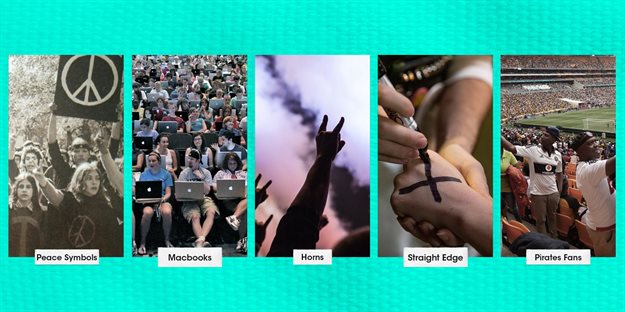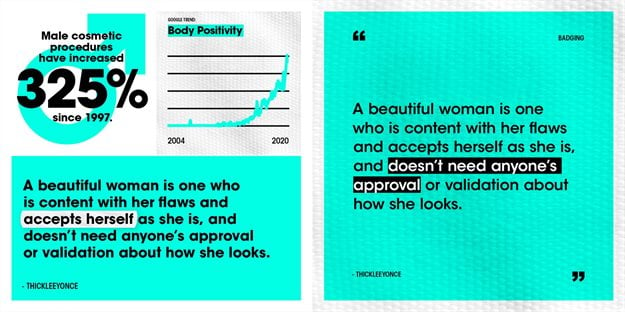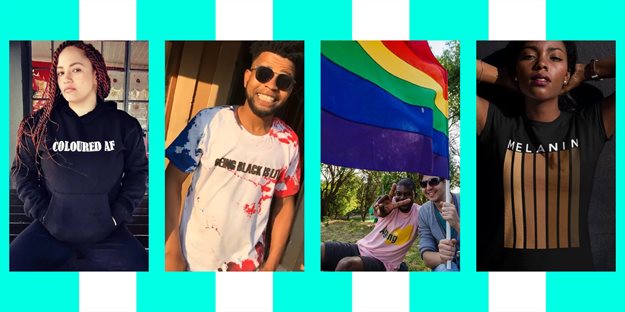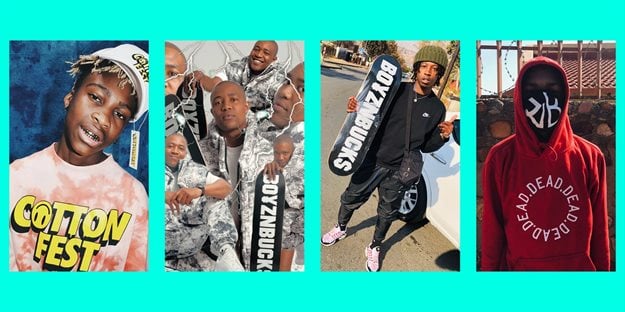Badge: verb. utilising a special or distinctive mark, token or device to show allegiance, membership, authority, achievement, etc.
The term badging has a variety of meanings, and here we are talking about what people badge with to signal status, membership or affiliation with a particular community, movement or organisation. Historically badging was far more formalised, and literally could mean a badge or emblem from an organisation that could alert other people to your membership. For example, the police, or a political organisation, or even something like Avon salespeople.
Badging helps us spot people who are "friendlies".
These are some examples of badging that you might recognise, for what they are, indicators of being a part of a club, of a team, of an ideology.
- Peace-loving hippies used the peace symbol and peace sign to show their allegiance to the cause.
- The Apple logo, too, communicates membership to a particular class or level of creativity, with an almost perceptible sneer to PC or Android users.
- Rock fingers… you know those rockers!
- Straight Edge, in punk circles, represents ultra-disciplined abstinence from typical punk stereotypes. Members do not, amongst other things, drink, take drugs, or smoke, signifying their dedication to body and purity of mind.
- Sports fans have been badging for decades, and when you see a stranger wearing "your team's" logo, you know you have a fellow friend to chat with about that team.
These are just some of the ways that people badge, but the varieties of ways we badge are only growing, even now brands are badging with social justice causes.
If we consider these causes, one of them is body positivity, and with the incredibly narrow beauty standards that afflicted modern culture, the build-up in concern and personal guilt regarding body image has been horrifying on so many levels.
In recent years, however, reclamation of the body, especially by women has started changing how we speak about body image and also how much we allow that body image to affect our happiness. Men, however, are not doing so well, with many going in the opposite direction and getting increasingly concerned about body image.
Models like Thickleeyonce have come across with powerful statements regarding body image. She along with many people around the world are trying to change that narrative.
Personal culture is another thing that people are badging with, taking their identity which was previously, and in some cases currently, subjected to abuse and rejecting it, throwing it back in the faces of those who dislike them based on race, gender, religion or more.
One of the most awesome ways of badging, especially in South Africa is with “being” local. We love our local brands and actively showcase them in the streets and on the socials. International brands have for the longest time been the brands with which South Africans have badged, but:
- From Nike and Kappa, we have moved to Konkhe Kuhamba Kahle and Drip.
- From Louis Vuitton and Gucci, we now have Rich Mnisi.
- Who needs Coachella when we have Cottonfest.
Local is Lekker was a slogan in the 90s but it’s something to live by in the 20s.
Badging can be intentional or a byproduct of the way we/you live as we slip into those all too familiar slogans, signs, t-shirts and other ways of showing off our affiliations. It can also be intentional and provocative, such as seeking out political colours or logos to badge us with those whose ideologies we agree with and, in the same breath stating those – or whose - we don't.
What do your badges say?









































